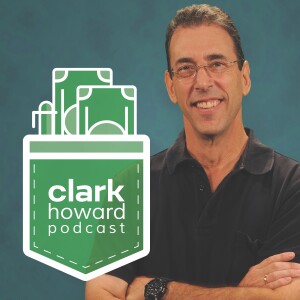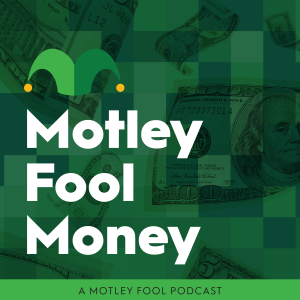

Accredited Investors Only | Presented by Accredited Life
https://anchor.fm/s/fc0acf74/podcast/rssEpisode List

Building a $30M Fund From the Ground Up with Alex Martyn | 044
In this episode of Accredited Investors Only, I sit down with Alex Martyn, a passionate real estate entrepreneur who took the leap from the corporate world into real estate—and never looked back. From growing up in Delaware County, PA, to navigating his first failed flip, Alex shares how he rebuilt through grit, networking, and a clear vision. He takes us through the evolution of his investment strategy, how his focus shifted toward private lending, and why integrity and relationship-building are the foundation of his success.We dig deep into the details of how Alex and his partner scaled a rental portfolio in Coatesville, structured their private lending fund, and now provide passive investors with steady, fixed returns. Alex also gives his take on the Mid-Atlantic market, the importance of knowing your borrower, and how being adaptable is the real key to thriving in real estate over the long haul.Timeline Summary:[0:00] - Introduction[1:33] - Meet Alex Martyn: from Delco roots to real estate entrepreneur[4:30] - The book that sparked a bold leap from finance to real estate[6:38] - Lessons from a failed first flip and starting over with intent[8:06] - Building partnerships, gaining traction, and making the first real profit[12:11] - Rapid portfolio growth post-COVID and a shift to private lending[14:34] - The critical failure that taught Alex how to vet deals and partners[19:00] - Why the operator matters more than the deal itself[24:11] - Structuring loans, trust-building, and protecting investor capital[30:04] - Transitioning from deal-by-deal to fund model for scalability[36:07] - Why Coatesville, Wilmington, and Philly suburbs are strong markets[40:41] - Steady growth vs. boom-bust cycles—why the Mid-Atlantic wins[47:38] - Final thoughts on networking, giving back, and being open to opportunity5 Key Takeaways:Failure is a Foundation – Alex’s first real estate deal failed, but it taught him invaluable lessons about due diligence, partner selection, and persistence.Relationships Are Everything – From raising capital to vetting borrowers, trust and reputation are the cornerstones of Alex’s lending model.Know Your Market – Targeting steady-growth areas like Coatesville and Wilmington has helped Alex avoid the volatility seen in flashier regions.The Operator Matters More Than the Deal – Even a great deal can go bad with the wrong operator—Alex focuses on integrity, experience, and values.Adaptability Wins – Real estate is not one-size-fits-all. Being willing to shift strategies—like moving from flips to private lending—is key to long-term success.Links Mentioned:Alex Martyn’s email: alex@spgcapital.comSPG Capital website: www.spgcapital.comIf you enjoyed this episode, please rate, follow, and share the podcast with fellow investors. Your support helps us keep bringing you valuable conversations like this one. Thanks for tuning in!

Building Wealth with High-Yield Commercial Real Estate Deals with Ash Patel | 043
In this episode, I sit down with the incredibly insightful Ash Patel to unpack the secrets behind his commercial real estate success—and why he believes this asset class is the most underrated opportunity out there. Ash takes us on a journey from his corporate IT roots and relentless side hustles to becoming a powerhouse investor in strip malls, office buildings, and more. If you’ve been fixated on multifamily deals, this conversation will challenge everything you thought you knew about real estate investing.We talk about why commercial properties are still flying under the radar, how Ash transitioned from self-funding to raising capital, and what he looks for in today’s market. Ash shares insights into creative deal sourcing, smart lease structuring, risk mitigation strategies, and his powerful cash-on-cash return philosophy. Whether you’re an active investor or exploring passive income options, this episode is packed with actionable insights and surprising truths.Episode Timeline[0:00] - Introduction[2:22] - Ash’s corporate journey and the party-fueled “quitting” story that backfired[5:36] - The unexpected toilet-clogging moment that made Ash go all-in on commercial real estate[10:52] - How he scaled his portfolio through value-add opportunities in underpriced deals[12:20] - What finally pushed Ash to start raising investor capital[14:21] - Why commercial is the “best kept secret” in real estate[15:59] - Flex industrial vs. retail: which asset class wins in 2025[18:24] - The truth behind the “retail apocalypse” and why vacancy is at an all-time low[20:15] - Where office demand is booming post-COVID[24:02] - Lease tactics that protect landlords from costly tenant issues[27:18] - The 22% preferred return deal that made a statement[30:22] - Off-market deal sourcing tips that outsmart the competition[34:05] - Why Ash avoids 10-year holds and prefers investor accountability[35:18] - The mastermind that grew from one Zoom call to a thriving 80-member community[37:03] - When to bring in brokers—and when to handle leasing in-house5 Key TakeawaysCommercial tenants can be your best asset – They often invest in property improvements, unlike residential tenants who may be a maintenance drain.Cash-on-cash return with tax implications is king – This is Ash’s north star metric when evaluating any investment opportunity.Retail is far from dead – Despite media narratives, strip malls and neighborhood retail centers have the lowest vacancy in history.Short-term holds = accountability – Ash caps all deals at five years to ensure focus, performance, and investor trust.There’s no one-size-fits-all path – Whether you’re an active investor or looking to go passive, there’s a place for you in commercial real estate—if you know where to look.Links & ResourcesLearn more: InvestBeyondMultifamily.comContact Ash: ash@investbeyondmultifamily.comIf you enjoyed this episode, be sure to rate, follow, and leave a review. And don’t forget to share it with someone who’s ready to think beyond multifamily investing!

Raising Millions Without Cold Calls, The Organic Investor Strategy with Craig McGrouther | 042
In this episode, I’m joined by Craig McGrouther, Director of Business Development at Lone Star Capital, for a deep dive into his evolution from realtor to capital raiser in the multifamily investment world. We cover how Craig broke into private equity, what makes Lone Star’s syndication model successful, and how content, relationships, and deal execution fuel their growth.Craig also unpacks the structure behind Lone Star’s tax-exempt affordable housing deals, what their acquisitions team looks for in a competitive market, and how he educates himself and his investors to make informed decisions. Whether you’re an active investor or a passive one, this episode delivers a masterclass in real estate syndication strategy.Episode Highlights:[0:00] - Introduction[1:54] - Craig’s path from residential realtor to multifamily capital raiser[6:12] - Why he left real estate sales despite big commission checks[10:31] - The value of working with a high-functioning team versus solo[13:40] - Lone Star Capital’s content machine and how it drives investor engagement[15:01] - Breakdown of roles on the Lone Star team and how they syndicate deals[16:32] - Their process for raising $12–20 million per deal[17:15] - Why deal flow is essential for maintaining investor relationships[18:38] - Craig’s most effective marketing channels for attracting accredited investors[20:40] - Why Lone Star prefers educated, self-motivated investors[26:40] - Common investor questions and how Lone Star’s content addresses them[30:08] - Their ideal property type, buy box, and value-add versus affordable deals[34:55] - How public-private tax exemption deals create immediate value[38:09] - Why Craig thinks 2025 won’t bring a crash but will offer strategic buys[40:21] - Why they stick with high-net-worth investors instead of institutions[42:06] - What Craig envisions for his future: deals, golf, and a great lifestyle5 Key Takeaways:Content Is Currency: Consistent podcasts and LinkedIn content have made Lone Star a trusted name and a magnet for high-quality leads.Strategic Syndication Wins: Rather than raising a blind pool, Lone Star syndicates deal-by-deal, keeping control and transparency with investors.Affordable Housing Strategy: Their public-private partnership model cuts property taxes by up to 90%, driving massive value with less rent upside.Investor Readiness Matters: Lone Star seeks investors who’ve done the homework—this isn’t about selling, it’s about aligning with the right people.Team-Driven Success: Craig thrives in a collaborative culture where ideas are executed fast and results are shared—far different from solo real estate sales.Links & Resources:Lone Star Capital Website:https://www.lscre.com/If you enjoyed this episode, please rate, follow, and share the podcast with someone who’s looking to level up in multifamily investing. Your reviews help us reach more listeners—thanks for tuning in!

Avoiding Legal Pitfalls in Real Estate Syndications with Kim Lisa Taylor | 041
In this deep-dive episode, I sit down with Kim Lisa Taylor, a corporate securities attorney and the founder of Syndication Attorneys, to explore the legal foundations of raising capital for private real estate and business ventures. Kim shares her experience guiding clients through over $5 billion in securities offerings, and she walks us through the legal structures, compliance requirements, and must-know insights for both active and passive investors.We cover the essentials—from accredited investor definitions and Regulation D rules to how to analyze offering documents and why investor communication is non-negotiable. Kim also shares common pitfalls, red flags to avoid, and the key documents that every investor should understand before wiring a dime. Whether you’re looking to raise money or invest passively, this episode will empower you with the tools to navigate securities law with confidence.Timeline Summary[0:00] - Kim’s mission to help entrepreneurs raise capital legally[3:01] - Why building real relationships still drives investor trust[6:22] - The real definition of an accredited investor (hint: it’s more than income)[10:40] - Comparing Rule 506(b) vs. 506(c): Which exemption fits your strategy?[14:44] - The role of the issuer, asset manager, and how syndications are structured[19:46] - LLCs vs. LPs: Which entity protects investors best?[27:56] - What counts as a security and what legal documents you need[33:11] - What’s in an investment summary—and why it matters more than the PPM[36:38] - Understanding sources and uses, management fees, and load[41:14] - Preferred returns, waterfalls, and how they’re structured[44:05] - Kim’s criteria for trustworthy sponsors and communication plans[47:07] - The danger of promissory statements and SEC red flags[52:17] - Exciting asset classes beyond multifamily and Kim’s upcoming book[55:23] - Resources for passive investors and where to dive deeper5 Key TakeawaysKnow the Difference Between 506(b) and 506(c) – Understanding how these exemptions work is critical for both fundraisers and investors. Each has different requirements for accreditation and advertising.Always Review the Investment Summary First – This is your most accessible and informative document for understanding the deal, including how your money will be used.Syndicator Structure Matters – Look closely at how the deal is organized (LLC vs. LP), who’s managing the asset, and how fees and distributions are structured.Watch for Legal Red Flags – High-pressure language, promises of guaranteed returns, or lack of proper legal documentation are all signs of potential noncompliance.Communication is Key – Sponsors should clearly lay out how they’ll communicate post-investment. Quarterly updates, transparent reporting, and investor alignment are green flags.Links & ResourcesSyndicationAttorneys.com – Free books, legal resources, and to schedule a callPodcast: Raise Capital LegallyYouTube: Syndication AttorneysUpcoming Event: Go Beyond Multifamily virtual event in JuneIf this episode brought you clarity and confidence in investing, please rate, follow, and review the podcast. And don’t forget to share it with fellow investors looking to protect their capital and make smarter decisions.

Hotels vs. Multifamily: The Secrets Behind Hospitality Success with Danny Gould | 040
Hey everyone, I’m excited for you to join me on this episode of the Accredited Investors Only podcast. Today, I’m sitting down with Danny Gould, the founder of Go Capital, who took a unique path from pre-med at Stanford to becoming a private equity investor specializing in hotels. We unpack Danny’s incredible journey, from selling residential real estate in Silicon Valley to pivoting into hotel ownership, and how he turned a chance thought at a Las Vegas buffet into his life’s North Star.We also break down the fundamentals of hotel investing, including what separates hotels from other real estate assets, the true value brands like Marriott and Hilton provide, and the current market dynamics creating unprecedented opportunities. Whether you’re a seasoned investor or exploring your first alternative investment, this episode will keep you engaged with actionable insights and real-world stories.Timeline Summary:[0:00] – Welcoming Danny and starting the conversation about his path to hospitality.[1:42] – Danny introduces Go Capital and shares his focus on hospitality and alternative investments.[3:04] – Danny’s early days: graduating pre-med from Stanford, getting into residential real estate, and what pushed him to take the leap.[10:19] – The defining moment in Vegas: deciding he would one day own a hotel on the Strip.[13:30] – Building a brokerage with 35 agents, recognizing the limitations of residential, and shifting to hotels.[16:02] – Discovering how hotels perfectly combine real estate and business operations, and why that alignment mattered.[20:35] – Danny shares the importance of sales skills and how being able to discern good deals has given him an edge.[25:21] – The three main ways to add value in hotel deals: property improvement plans (PIPs), operational efficiencies, and rebranding opportunities.[36:19] – A deep dive into STAR reports, understanding comps in hospitality, and how operators benchmark performance.[40:38] – The role of brand loyalty programs like Marriott Bonvoy and Hilton Honors in driving reservations.[45:31] – Danny’s thoughts on starting his own hotel brand and why learning from the giants first is key.[54:26] – Why rising interest rates and upcoming loan maturities are creating unique buying opportunities in hospitality.[55:15] – How the commercial lending landscape differs from residential, and why timing matters for investors.Links & ResourcesAccredited Life – Learn more about the podcast and community: accreditedlife.comGo Capital – Danny’s private equity firm specializing in hospitality investments: gocapitalgroup.com (confirm actual link)5 Key Takeaways:Follow your instincts, even if they don’t make sense at the time. Danny’s pivot from pre-med to real estate started with a gut feeling that led him to success in an unexpected field.Sales and networking are universal skills. Danny credits his sales experience and ability to connect with people as the foundation for his success across industries.Hotel investing is unique because it blends real estate with operational business. Unlike multifamily properties, hotels’ values are heavily influenced by the operator’s ability to drive revenue and control costs.Understand value levers. The three key ways to add value in hotels—PIPs, operational improvements, and rebranding—can dramatically change an asset’s performance and exit value.The market timing couldn’t be better. Rising rates and looming loan maturities mean motivated sellers, creating rare opportunities for well-prepared investors to buy quality hotel assets at discounts.Closing Remarks:Thanks for tuning in! If you enjoyed this episode, please take a moment to rate, follow, and review the podcast—it helps us reach more listeners like you. And don’t forget to share this episode with anyone interested in real estate, hospitality, or building a successful investing career. See you in the next episode!
Create Your Podcast In Minutes
- Full-featured podcast site
- Unlimited storage and bandwidth
- Comprehensive podcast stats
- Distribute to Apple Podcasts, Spotify, and more
- Make money with your podcast












